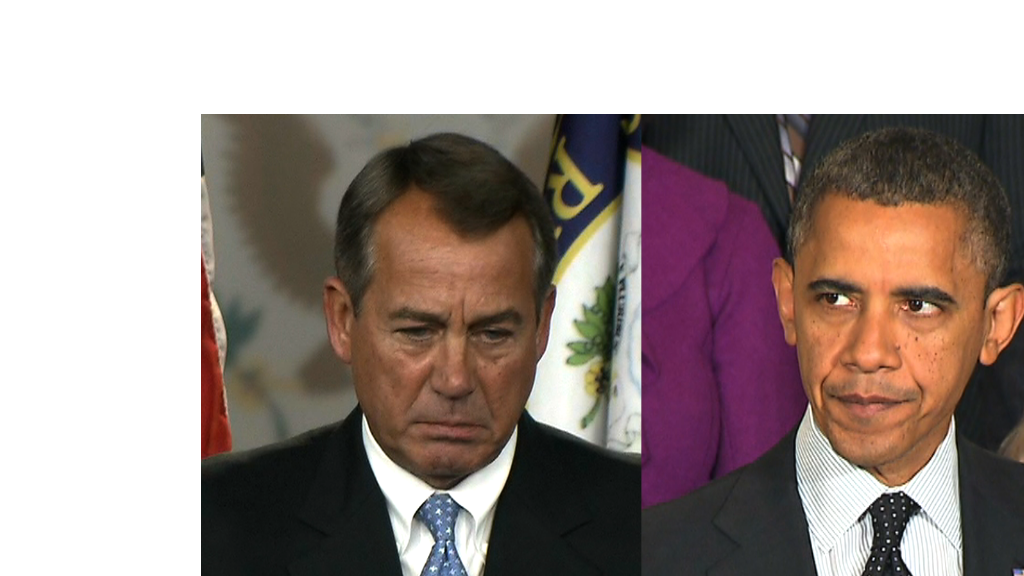
After dueling public statements on the fiscal cliff, how much closer are President Obama and House Speaker John Boehner to coming together on a deal?
Not much -- at least when it comes to the biggest single chunk of the fiscal cliff: The Bush tax cuts.
The fiscal cliff starts to take effect on Jan. 1 and includes $7 trillion worth of tax increases and spending cuts over a decade. The Bush tax cuts account for nearly half that. Among other policies at issue: reductions in both defense and non-defense spending and the end of a payroll tax holiday.
Both Obama and Boehner said they're willing to work with the other side to come up with a serious deficit reduction package and a way to avert the fiscal cliff.
But each still drew a clear line when it came to taxing the rich.
The crux of the controversy is whether to extend the portion of the Bush tax cuts that apply to income over $200,000 ($250,000 for those who are married). If they were allowed to expire as scheduled on Dec. 31, the top two income tax rates would increase to 36% and 39.6% next year, up from 33% and 35% this year. Investment tax rates would rise too from their current level of 15%.
Obama and Senate Democrats want to let them expire. Boehner and House Republicans want to extend them.
Related: What's in the fiscal cliff?
"I am not going to ask students and seniors and middle-class families to pay down the entire deficit while people like me, making over $250,000, aren't asked to pay a dime more in taxes," Obama said Friday. "While there may be disagreement in Congress over whether or not to raise taxes on folks making over $250,000 a year, nobody -- not Republicans, not Democrats -- want taxes to go up for folks making under $250,000 a year."
A bill passed by the Senate extends the Bush tax cuts for those making under $250,000. And Obama said he'd sign it "right away" if the House approved it.
The president never uttered the word "veto" in his statement. But White House spokesman Jay Carney did at a press briefing Friday. "The president would veto any bill that extends Bush-era tax cuts for the top 2% of ... earners in this country."
Boehner, following Obama's statement, had this to say: "The increased tax rates that would be allowed under the Senate-passed bill are part of the fiscal cliff that economists are warning us to avoid."
The two parties' differences over taxing the rich may well take the fiscal cliff negotiations down to the wire if not over it. But it's early days yet in the process -- Obama has invited congressional leadership from both parties to the White House next week to begin talks.
And congressional scholar Norman Ornstein of the American Enterprise Institute thinks there is some wiggle room for the president to cut a deal.
"If they can find a way to raise the same money from [those] over [the] $250,000 threshold other than by raising rates -- or if the negotiators as part of the deal raised the threshold to $500,000 -- he would certainly sign on."



